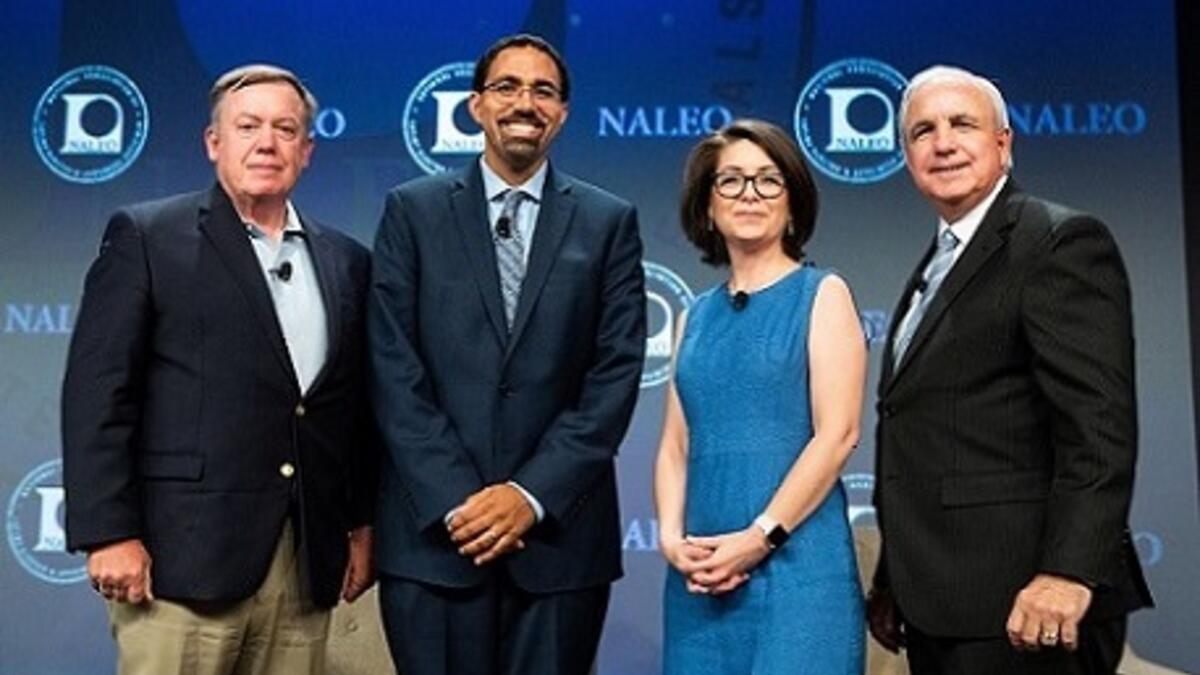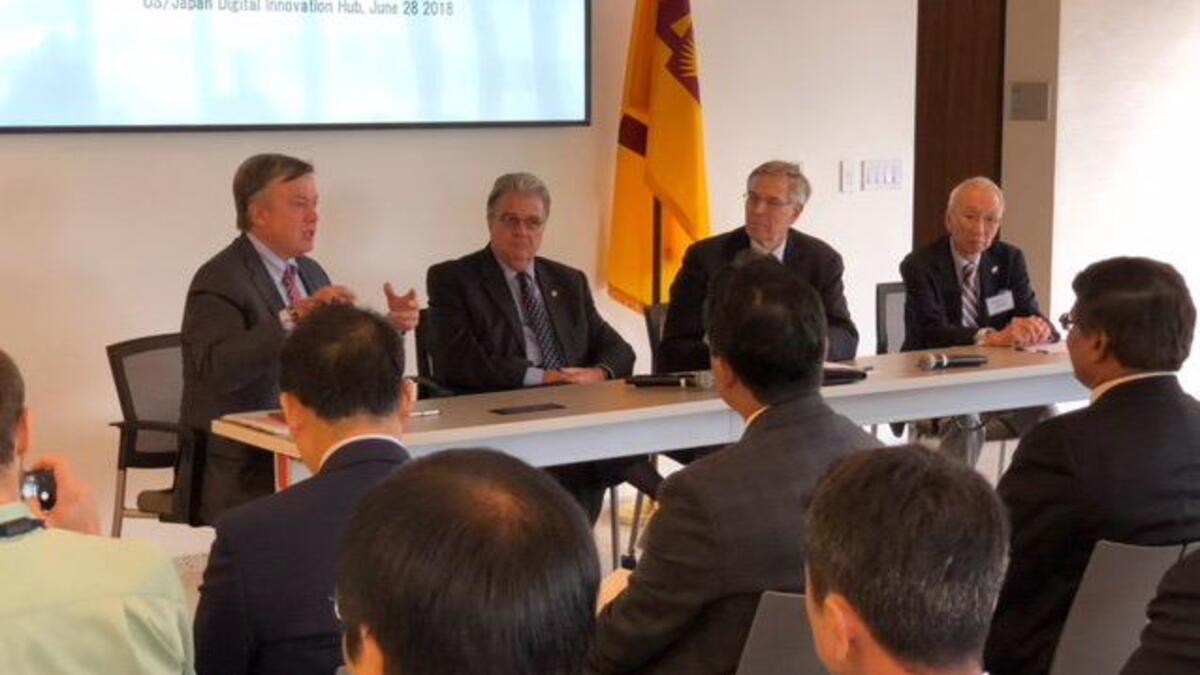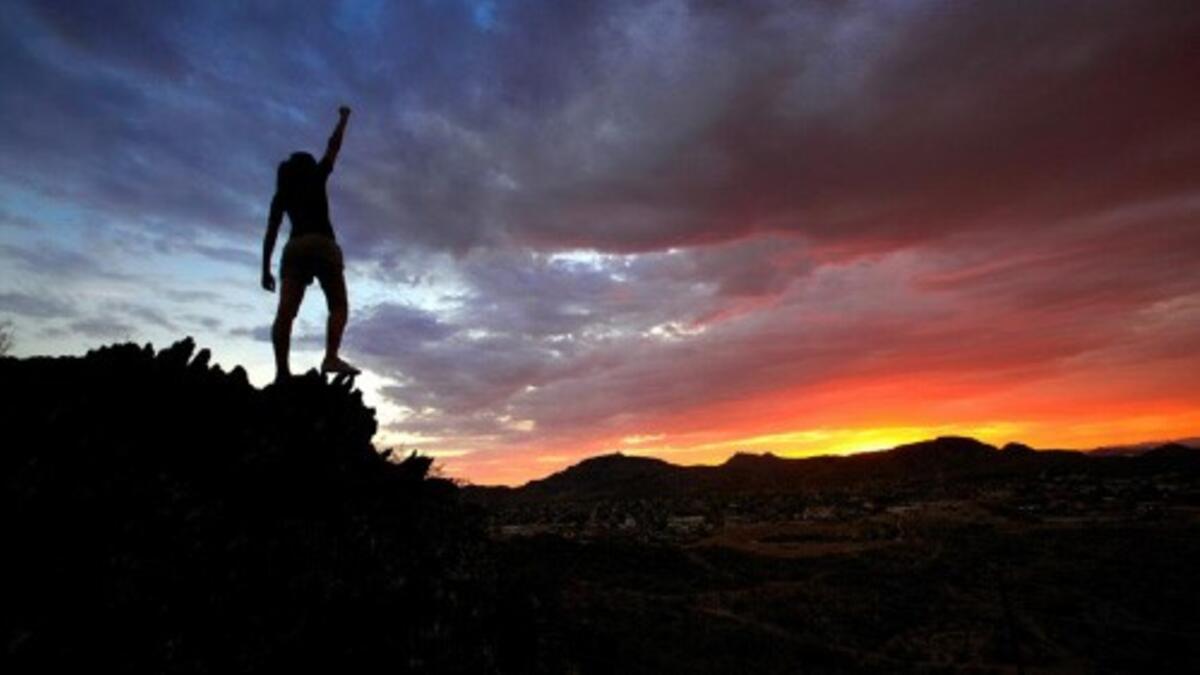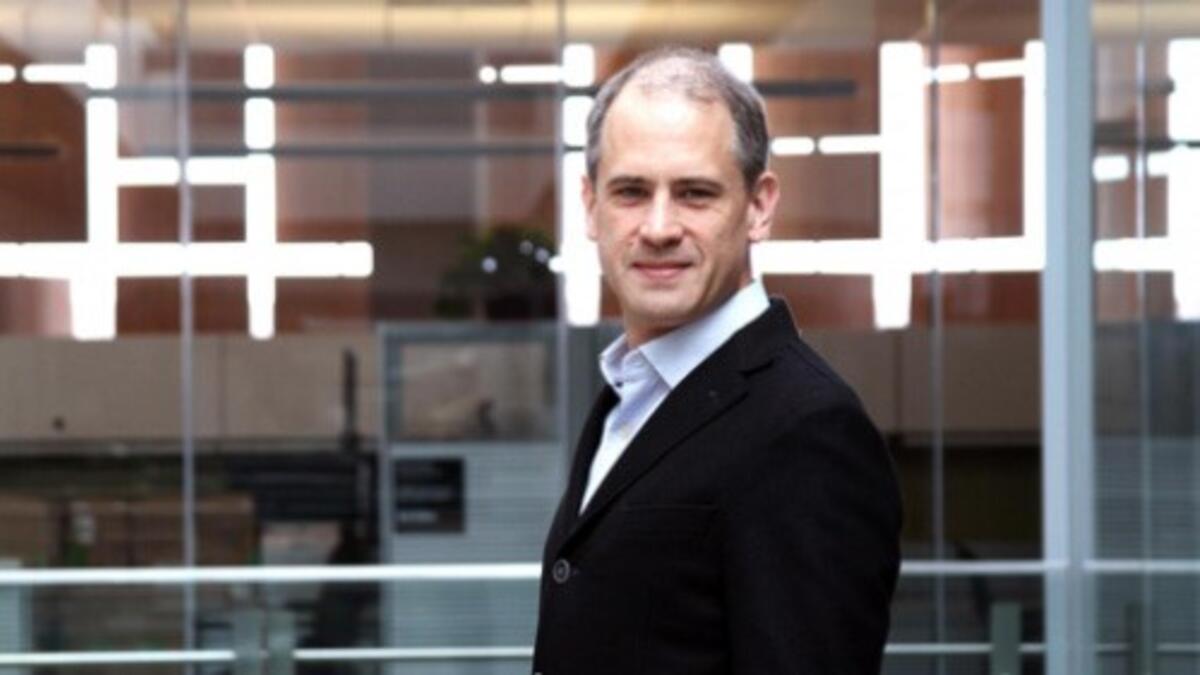
Updates from the President
Updates from President Crow: July 16, 2018
- The real existential threat: Not enough college graduates
- Exploring priorities, new opportunities for collaboration with Japan
- Breaking ground in national scholarships, global prestige, patents
- New grants bring new opportunities for impact

Post plenary discussion with panelists Dr. John B. King, Gabriella Gomez and Mayor Carlos Giménez. (Photo credit: Deanna Dent)
The real existential threat: Not enough college graduates
The National Association of Latino Elected and Appointed Officials, a Washington, DC based nonprofit, nonpartisan organization, recently held its 35th annual conference in Phoenix. I was pleased to give remarks and to moderate a panel with former United States Secretary of Education John B. King, Gabriella Gomez of Postsecondary Policy and Advocacy at The Gates Foundation, and Miami-Dade County Mayor Carlos Giménez . Our focus was the impact of higher education on the U.S. economy and the Latino workforce.
In response to recent headlines claiming that immigration is an existential threat to the U.S., I highlighted demographic and college attainment data to emphasize that the true danger to American prosperity is our inability to produce the number of college graduates our economy will need. Based on 2016 numbers, the U.S. will require 11.9 million additional Latino degree holders by 2050 in order to close the need gap. In its current form our country's higher education system is not designed to fulfill this growth, so it is imperative that we collaborate to imagine and deploy new solutions that elevate college access and success for all.

Discussing science and technology policy priorities with Rush Holt, Robert Caret and Professor Shuzaburo Takeda.
Exploring priorities, new opportunities for collaboration with Japan
Last spring, ASU formalized an innovative, collaborative relationship with multiple U.S. and Japanese universities to help identify new academic approaches and education reforms to address Japan's unique social and economic challenges. The U.S.-Japan Digital Innovation Hub is composed of 16 institutions that examine opportunities in contemporary, technology-driven fields and evolve strategies for cooperative educational projects and research. While I could not attend the Hub's inaugural convening last March in Tokyo, I had the pleasure last month of joining the group's second gathering at the Barrett & O'Connor Center in Washington, DC.
This two-day event, co-hosted at the Embassy of Japan, sought to enhance understanding of the national and institutional science and technology priorities of our respective nations, and I moderated a conversation about top U.S.-Japan S&T strategic issues with Rush Holt, CEO of the American Association for the Advancement of Science, Robert Caret, Chancellor of the University System of Maryland, and Shuzaburo Takeda, Management Advisor of RIKEN , Japan's largest comprehensive research institution. While there is no doubt that universities, government and industry are all facing complex challenges in the digital age, there was broad agreement that there are also many important prospects in the areas of economic development, cybersecurity, data science and artificial intelligence, among many others.
While the Hub continues working to pinpoint its next steps, it is exciting to contemplate what ideas and answers it will generate. I look forward to sharing more news in the future about this and our other global engagement partnerships as they evolve.

Breaking ground in national scholarships, global prestige and patents
In a record-setting year of achievement, ASU students have earned many of the nation's top academic awards , including the Marshall Scholarship, the Gates Cambridge Scholarship and the Truman Scholarship. Adding to this excellence, many ASU students have also distinguished themselves by becoming the first Sun Devils ever to earn other unique scholarships and fellowships, including the Doris Duke Conservation Scholarship and the German Academic Exchange Service Research Internships in Science and Engineering. Given the size and scope of our student population, as well as the challenging application criteria and protocols involved, the number and caliber of awards earned by ASU students this past academic year has been extraordinary.
ASU marked two more major milestones recently. Times Higher Education named us one of the top 100 most powerful university brands worldwide in academics and research. THE's annual World Reputation Rankings are determined by an invitation-only survey of senior academics, and we received our highest placement to date entering the 81-90 category. We are one of only five Pac-12 institutions to make the list.
ASU also now ranks 17th of all universities globally for U.S. patents awarded by the U.S. National Academy of Inventors and the Intellectual Property Owners Association. The university earned 100 patents in 2017, a nearly 40 percent increase from the year before, which helped us to move up 13 spots from the previous ranking. ASU now places ahead of Columbia University, Duke University and the University of Washington.
These are just a few examples of how our university community continues working collectively to create progress and success at every level of the institution.

ASU Associate Professor Carlo Maley is the director of the Arizona Cancer and Evolution Center and the first president of the International Society for Evolution, Ecology and Cancer. (Photo Credit: ASU Biodesign)
New grants bring new opportunities for impact
ASU has been chosen by the National Cancer Institute to establish the Arizona Cancer and Evolution Center with the help of an $8.5 million grant over the next five years. The center will focus on understanding the intersection between evolutionary, ecological and experimental cancer research to find new answers, and will serve as the hub of a global network of scientists. In its selection as the center's home, ASU becomes one of only 13 research institutions nationally to support the Cancer Systems Biology Consortium.
On a different front, the Howard Hughes Medical Institute also recently selected ASU as the recipient of a $1 million grant to develop a program designed to promote inclusion in science education. As part of HHMI's "Inclusive Excellence" initiative, ASU will formulate innovative online learning modules with the goal of helping all science learners, and historically underrepresented students in particular, to enhance vital critical thinking skills and participate in learning experiences that make science more accessible to first-generation students.
While these grants are different in their focus, they show how ASU is growing in competitiveness and innovation. Efforts like these are happening across the university and pushing progress forward. The scientists the HHMI grant produces may one day be the cancer researchers that take Arizona Cancer and Evolution Center into the future, and we're ready to take on that challenge and many more.